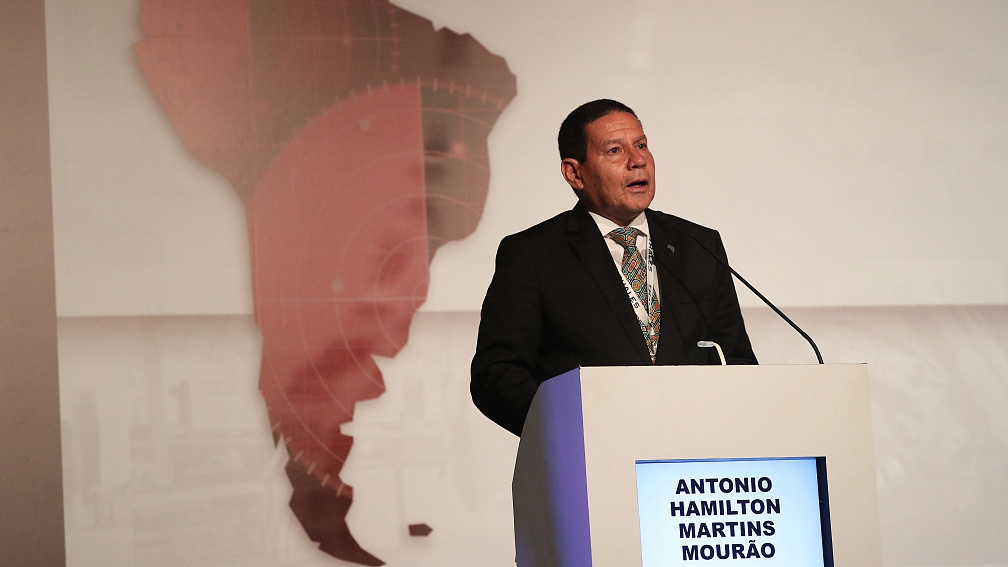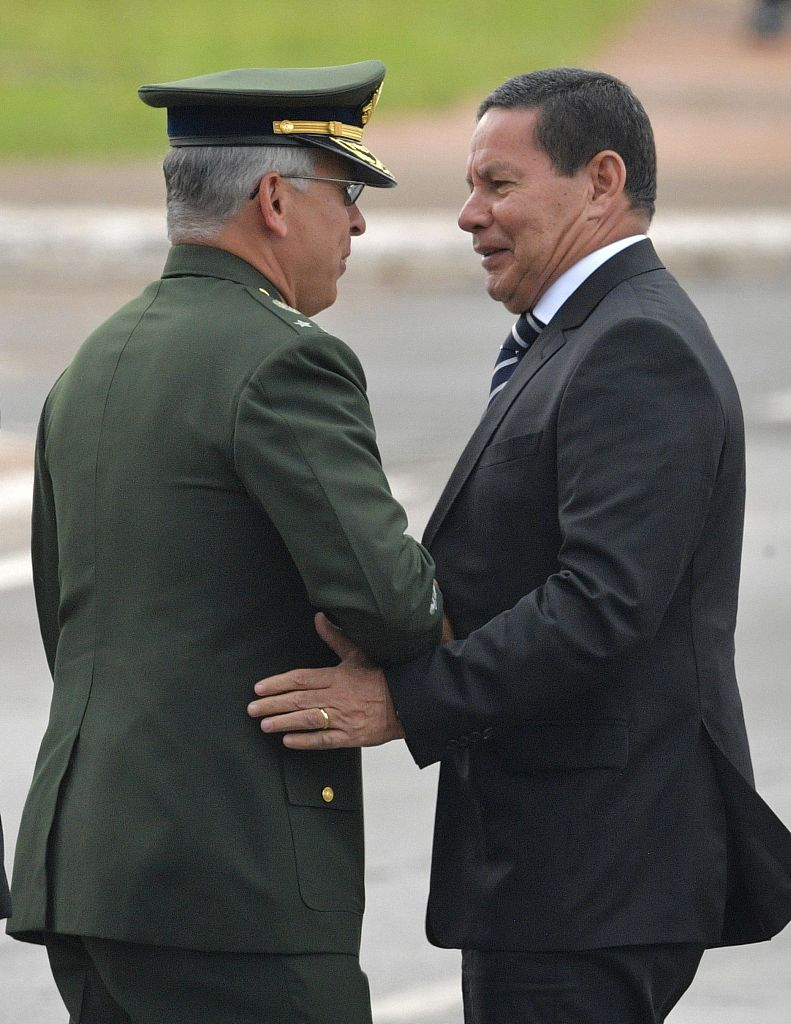
Opinion
10:18, 19-May-2019
Headwind to tailwind: Future of China–Brazil economic relations
Alessadro Golombiewski Teixeira

Editor's note: Alessandro Golombiewski Teixeira is a National Thousand Talent Distinguished Professor of Public Policy at the School of Public Policy and Management, Tsinghua University, and a professor of International Business at Schwarzman College in Tsinghua. He is a former Special Economic Advisor of the President of Brazil and former minister of Tourism, and minister of Development, Industry, and Foreign Trade of Brazil. He was also president of the World Investment Association (WAIPA). The article reflects the author's views, and not necessarily those of CGTN.
As 2019 progresses, we already foresee a bright but complex future for economic relations between China and Brazil. A very positive economic agenda sees trade and investment as the main pillars. However, with the recent elections in 2018, Brazil is going through a very complex politico-economic situation.
During his election campaign, the newly elected Brazilian president, Jair Bolsonaro, made several critical statements regarding Brazil's economic relations with China, thus raising concerns within the Chinese government. This hostile tone has sent a negative signal to a country that has a fundamental presence in the Brazilian economy.
Today, the new vice president of Brazil and his official delegation will arrive in China for a meeting with the deputy prime minister of China in the China–Brazil High-level Coordination and Cooperation Committee (COSBAN).
The Brazilian vice president has the huge responsibility of changing the perception created by the incumbent president, who received severe criticism from the Brazilian private sector, especially from the agribusiness sectors, and was put under pressure to revise his statement criticizing China and to reestablish normality in bilateral relations.
The Brazilian vice president has been very resourceful in raising the private sector's demands for dialogue. It is now his responsibility to smooth Brasilia–Beijing relations and guarantee a positive economic outcome – maintaining China's level of economic engagement in the Brazilian economy.
The question everyone is asking is, "To what extent is this possible, and can he deliver that outcome?"

Brazil's Vice-President-elect Hamilton Mourao (R) arrives at the Cathedral from where the presidential convoy will depart for the National Congress in Brasilia for the presidential inauguration ceremony, in Brasilia on January 1, 2019. /VCG Photo
Brazil's Vice-President-elect Hamilton Mourao (R) arrives at the Cathedral from where the presidential convoy will depart for the National Congress in Brasilia for the presidential inauguration ceremony, in Brasilia on January 1, 2019. /VCG Photo
China and Brazil established diplomatic relations in 1974. Beginning in the early 1990s, both countries began to take steps to deepen their bilateral relationship, with China now becoming Brazil's largest trading partner and the largest capital investor in the country.
In terms of trade, Brazil's exports to China in 2018 amounted to 62.2 billion U.S. dollars, while it imported 34.7 billion U.S. dollars, denoting a very important trade balance surplus favoring Brazil. In terms of investment, China has invested over 60 billion U.S. dollars in the last 10 years, in various segments.
Chinese investments have primarily focused on commodities after Chinese companies, such as Sany, Chery, Huawei and Lenovo, sought to increase access to the Brazilian market by focusing on opportunities in the industrial sector, including machinery, equipment, automobiles and electronic devices.
Lately, Chinese financial institutions such as ICBC, China Construction Bank and China Communication Bank began to acquire significant positions in Brazilian banks, and large infrastructure and electricity projects were initiated by companies such as Three Gorges and State Grid.
From 2015 onwards, while Chinese investments in other countries and regions began to decrease, investment in Brazil continued to rise.
However, with an unpredictable politico-economic scenario, direct Chinese investment in Brazil fell from 11.3 billion U.S. dollars in 2017 to just 2.8 billion U.S. dollars in 2018.
This shows that the economic bilateral relationship has already suffered, but the relationship is already too deep and a confrontation with Beijing would be too painful for the Brazilian economy. Between 2004 and 2018, more than 200 Chinese companies began operations in Brazil. The sum of investments and financing reached a total of 123 billion U.S. dollars in the last decade.
These economic results were generated by more than a decade of interaction through very important economic cooperation instruments. The creation of COSBAN in 2004 launched a new chapter in China–Brazil economic relations. This high-level commission oversees long-term actions in key areas such as science, technology and innovation, spatial cooperation, energy, mining, infrastructure and transport, investments as well as industrial and economic and cultural cooperation.
Through COSBAN, Brazil needs to apply a pragmatic approach to remedy the distrust created through the Jair Bolsonaro government, and China needs to show more than just its trade and investment intentions by outlining its long-term strategy towards a feeble Brazilian economy.
China knows that the vice president of Brazil will be seeking more trade, infrastructure investment, industrial-technological upgrades and science and technology cooperation. However, this will only be achieved, in my opinion, if both sides have a long-term strategic plan.
In the 45-year anniversary of the resumption of diplomatic relations between Brazil and China, it is crucial to deepen our relationship. This is feasible only if the Brazilian vice president can go beyond the bewildering ideological stance of the Brazilian president and if the Chinese government understands that it needs to see Brazil as a special case and not just part of a Latin American regional strategy. If both sides set their cards out right, they will play a win-win game.
(If you want to contribute and have specific expertise, please contact us at opinions@cgtn.com.)

SITEMAP
Copyright © 2018 CGTN. Beijing ICP prepared NO.16065310-3
Copyright © 2018 CGTN. Beijing ICP prepared NO.16065310-3